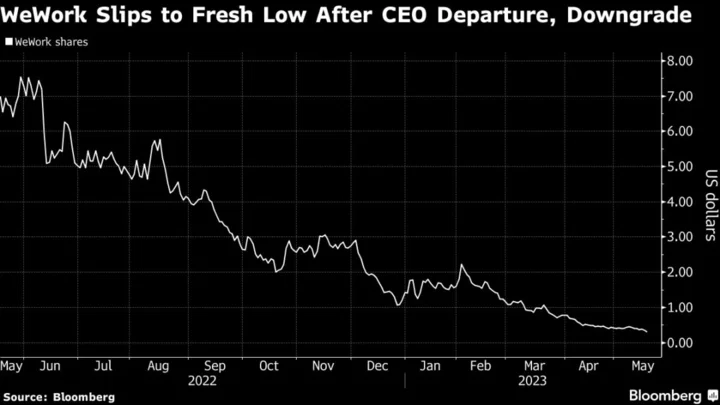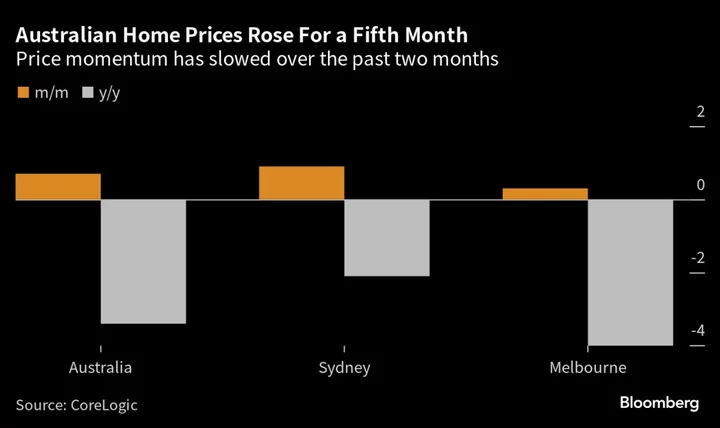WeWork shares slumped 25% to an all-time low Wednesday after an abrupt CEO change prompted analysts at Mizuho to downgrade the co-working real estate company to neutral from buy.
WeWork announced late Tuesday David Tolley will be appointed interim chief executive May 26, with the current CEO and Chairman Sandeep Mathrani stepping down after three years in the role following the departure of WeWork’s controversial founder Adam Neumann.
“We see the change in CEO as disruptive, especially amid the current macro headwinds,” which have included higher corporate layoffs and bankruptcies the past two months, analysts led by Vikram Malhotra wrote in a note. “We now see our base case business assumptions, specifically occupancy targets, as unachievable, leading to higher cash burn and eventually driving the need for outside capital.”
Mizuhu lowered its price target from $1.75 to a Street-low of $0.30, near where shares are currently trading. The analysts said WeWork was unlikely to reach occupancy targets of 76% by the end of 2023 and 78% by the end of 2024. They also don’t expect the company to be free cash flow positive until the end of 2025.
Mathrani’s departure is the latest blow for WeWork stock, down 82% this year, as the company has struggled to cut costs and drive earnings. The slump has pushed shares below $1, threatening its eligibility to continue to list on the New York Stock Exchange — something management would like to remedy with a reverse-stock split, Piper Sandler analyst Alexander Goldfarb wrote in a note Tuesday following an investor meeting with the company.
Still, Wall Street is generally bullish on WeWork. The company has four buy ratings, two holds and no sell ratings, according to data compiled by Bloomberg.
Goldfarb, who has an overweight rating and $5.50 price target on WeWork, also said he is waiting on the next CEO to deliver.
“Hopefully the new CEO will further right-size the organization to thin out costs above and beyond where already identified, while growing revenue,” he wrote.
(Updates stock move at market close)









